'Don't take the women and children out of the home – put the man in a safe place instead', is the philosophy of Gandhi Nivas – a family violence facility in Otahuhu. The first centre has been so successful in a second will open early next year.
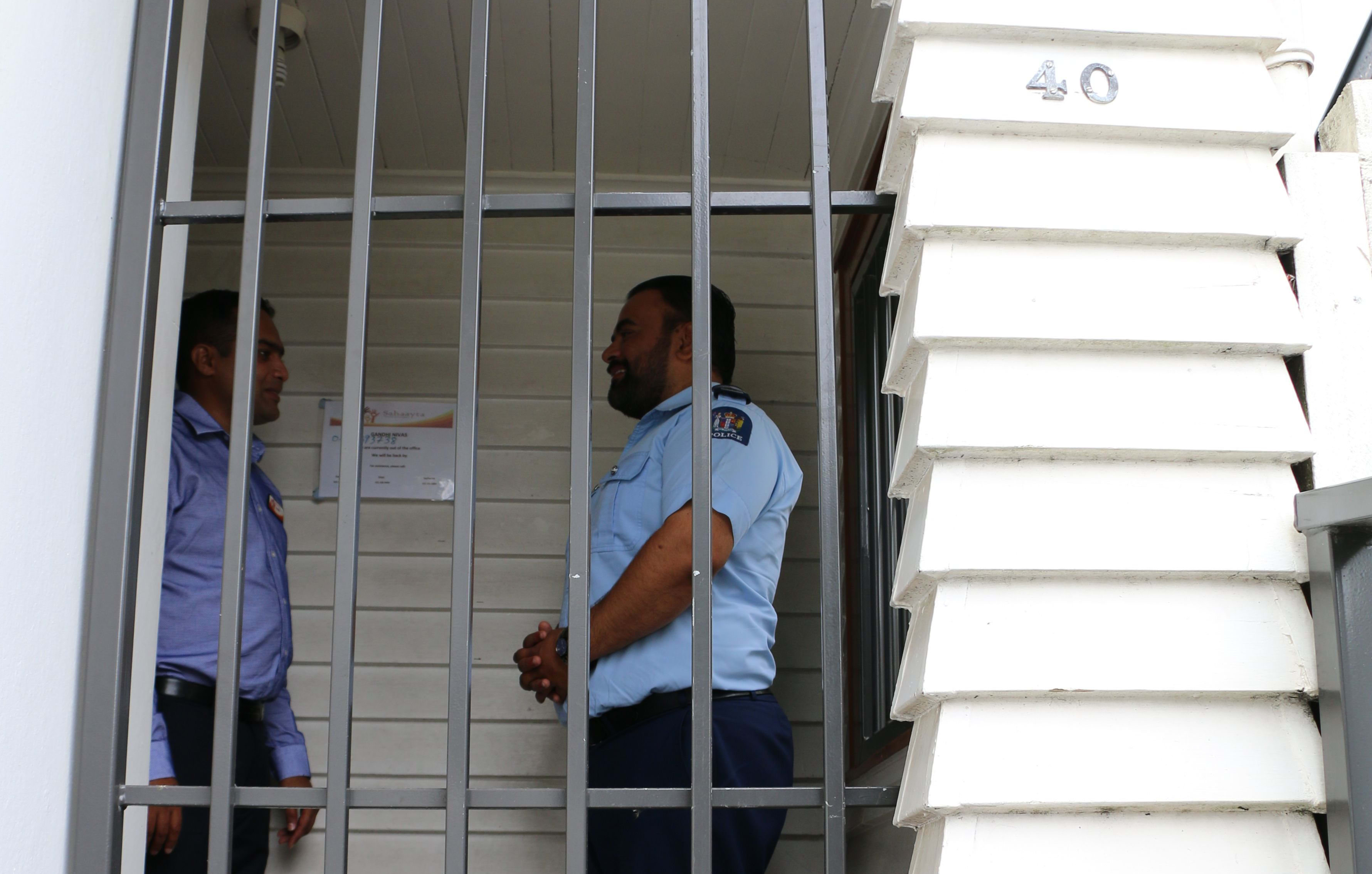
Gandhi Nivas, groundbreaking second safe house for men. Photo: RNZ Lynda Chanwai-Earle
Subscribe to Voices for free on iTunes, Spotify, Stitcher or wherever you listen to your podcasts.
Gandhi Nivas came about after a series of tragic homicides within the Indian community in 2014.
Fifty-five percent of protection order breaches were being committed by men from South Asian backgrounds and of the 14 women killed in domestic violence cases that year, four were Indian. A solution was needed and the response was innovative, effective and simple.
“Don’t take the women and children out of the home – put the man in a safe place instead", says community leader Ranjna Patel.
Gandhi Nivas is the brainchild of Ranjna Patel, who is now the Chair of its board.
“In the two and a half years we’ve been going, up to 640 families have used this service. It’s a proven project now.”
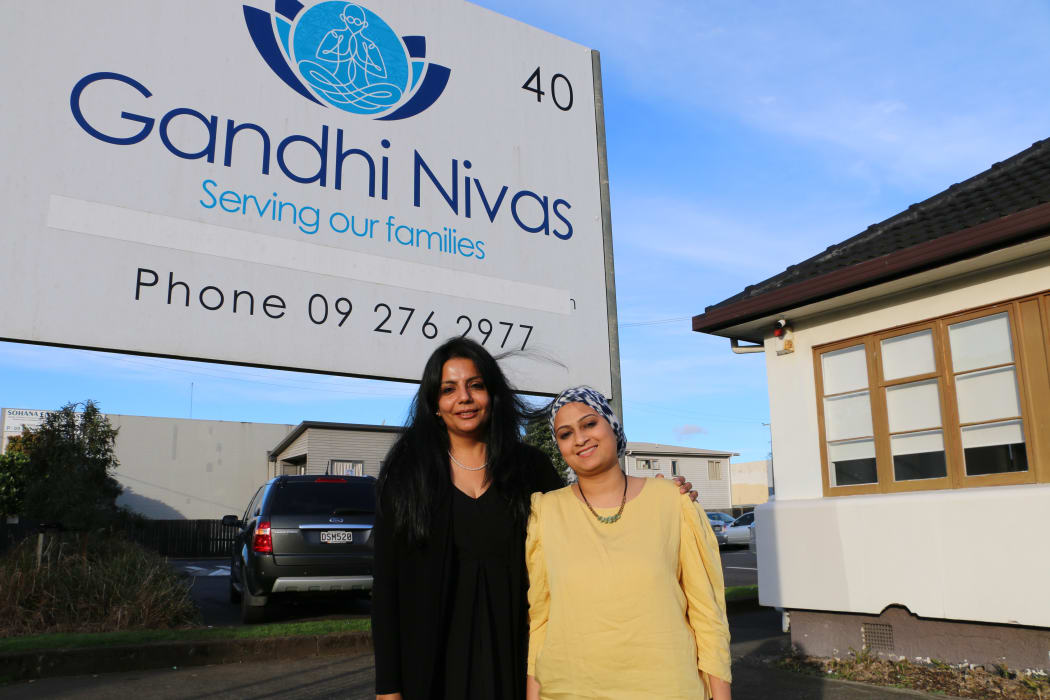
Counseling the men, Sucharita Varma (left) and Zoya Kara at Gandhi Nivas. Photo: RNZ Lynda Chanwai-Earle
What started as a South Asian/Indian community response to the tragic statistics of 2014 has quickly turned into a far-reaching programme for all men in South Auckland.
“Very quickly it was a community problem, not an ‘Indian community’ problem," says Ranjna. “We’ve had 30 ethnicities come through the house.”
The inaugural safe house was established in Otahuhu, Counties Manukau where the initiative began.
Police do the referring, men are offered accommodation and wrap-around 24/7 services including counselling.
The four simple and homely rooms at Gandhi Nivas can house up to twelve men but it’s no motel.
The counselling is mandatory. If you don’t take part, then you go into lock-up at the police station instead. Bars across windows and main entrances are a reminder that although the interior is comfortable, this is a secure facility.
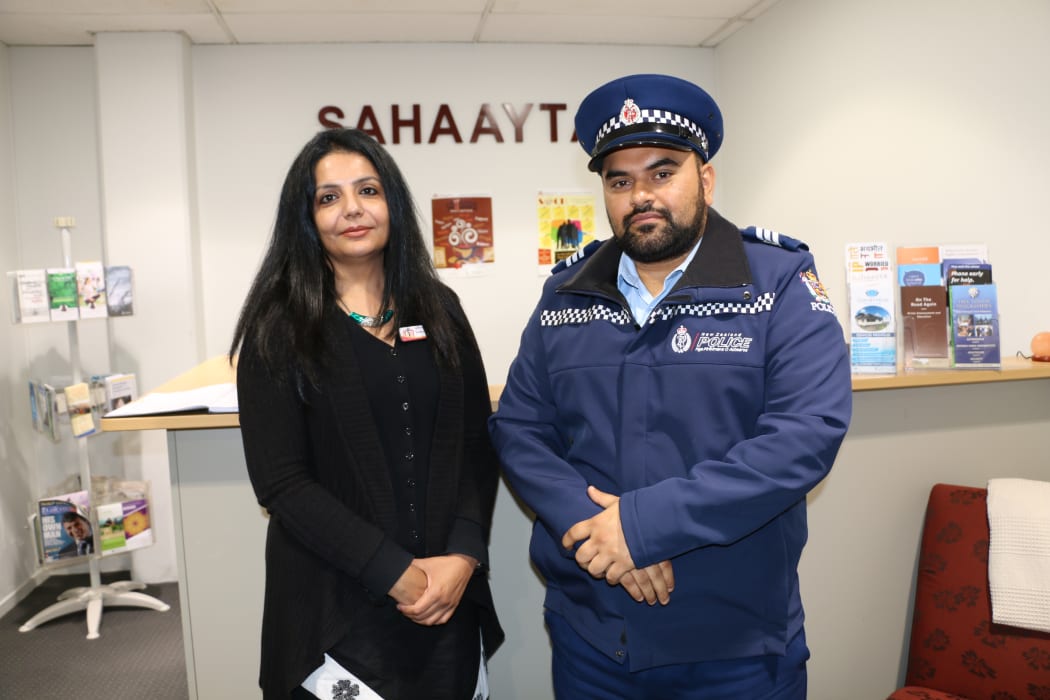
Sucharita Varma and Sergeant Gurpreet Arora Photo: RNZ / Lynda Chanwai-Earle
The men have been described as broken when they come to Gandhi Nivas.
“They are scared," says Sucharita Varma from Sahaayta Counselling. "Many of our men have experienced violence in their own lives – intergenerational.”
Often from new migrant communities, these men may have faced stigma and the pressures of unemployment.
Sucharita says it’s about the men learning to believe in themselves again.
“They’re uncomfortable when they come in. It’s about relationship building with the men. Earning their trust and working with their families, actually, to keep them safe, and grow from this experience to see that they don’t end up [where] they have, going forward.
“It’s a transformation for them,” says Karthik Nandikoor, another Sahaayta Counsellor on board since the beginning. “We see lots of changes when they come in here and go out of this place.”
Oma Ali is Somalian. He has a diploma in counselling and is a former refugee with a deep understanding of how men may end up needing Gandhi Nivas.
“I have a passion for helping people. I also wanted to see for myself how I could support these men. This is the best way I could do it.”
Oma has been counselling men at Gandhi Nivas for the last three years as a volunteer. Since Gandhi Nivas secured much-needed partnership funding from ACC, he can finally be paid.
“Men do find peace here, time to reflect. It gives them perspective.”
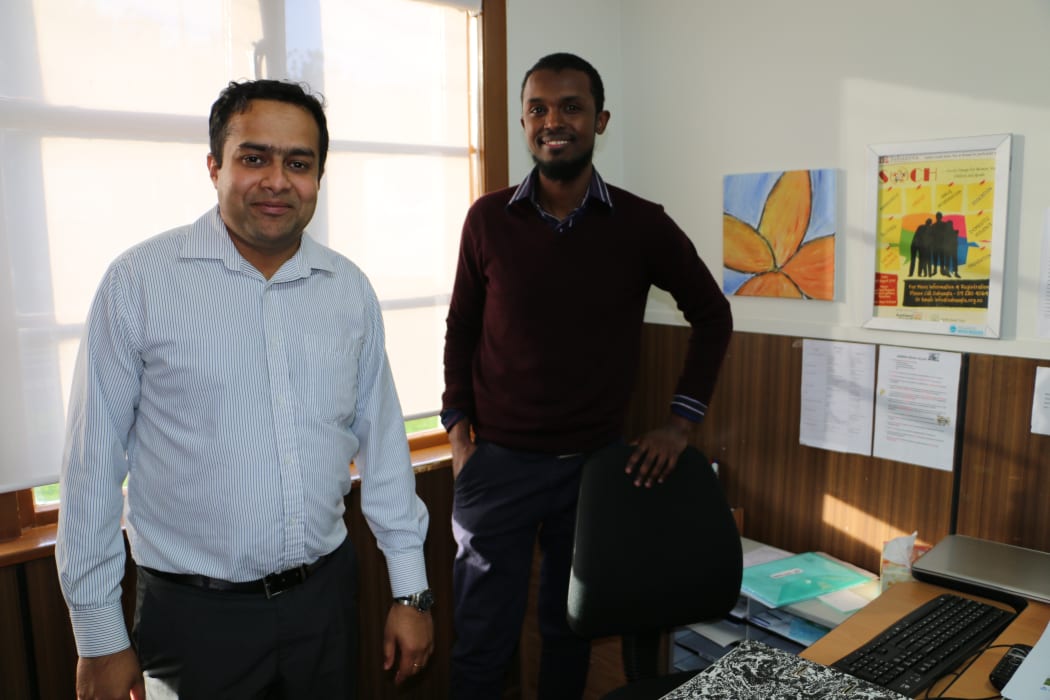
Empathy is crucial, Gandhi Nivas counselors Karthik Nandikoor and Oma Ali. Photo: RNZ Lynda Chanwai-Earle
Many former clients have poured out their feelings to Gandhi Nivas in letters of gratitude. They believe the help they have received here has saved their families and helped rebuild their lives.
“I was referred to Gandhi Nivas by New Zealand Police due to family violence" reads one letter. "Once I arrived I was welcomed not just by the counsellor, but by the other men here…” (22 year old Indian)
“My counsellor helped me a lot, to keep me calm and relaxed" reads another. "The counsellor took group sessions with me and other people for stress and anxiety. I was happy to that I was able to spend days at Gandhi Nivas.”
“The staff were very understanding and helpful," says a third. "My first night here was very hard to be away from home but as the days went by I realised how much time I had to look back and identify the areas that needed to be worked on. I’ve had time to make peace within myself”
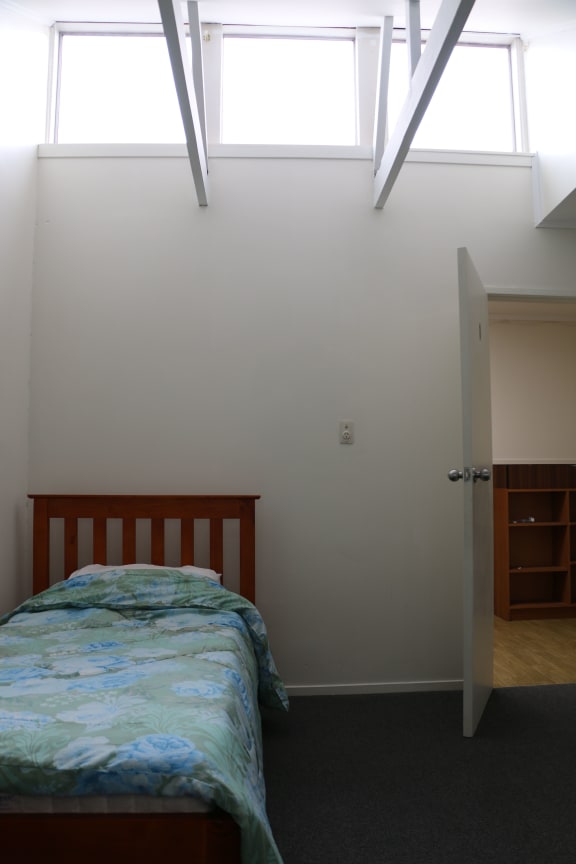
Safe space for men after Police Safety Orders (PSO) are issued. Photo: RNZ Lynda Chanwai-Earle
The families aren't forgotten. The 24/7 wrap-around service includes assessing the women and children and providing full family counselling with follow-ups if they are referred to other agencies. Ranjna is clear that no-one in the family should fall through the gaps after a family violence incident.
“Another set of counsellors will go to the woman, to make sure that this isn’t one-off incident. It may be ongoing but this is the first time she’s had courage to ring the police.”
Gandhi Nivas has sparked a positive trend of reduced offending in South Auckland and now a second safe house will be opened in early 2018, to meet demand elsewhere.
“Geographically we are looking at the wider Tāmaki Makaurau. Waitemata has the highest next lot of P.S.O.’s (Police Safety Orders) that are issued,” explains Ranjna, “but also recognising we do have a lot of pockets like Glenn Innes in Auckland, that are very high needs.”
The second Gandhi Nivas safe house will be built in the reconverted Te Atatu Police Station and plans to open in early February 2018.
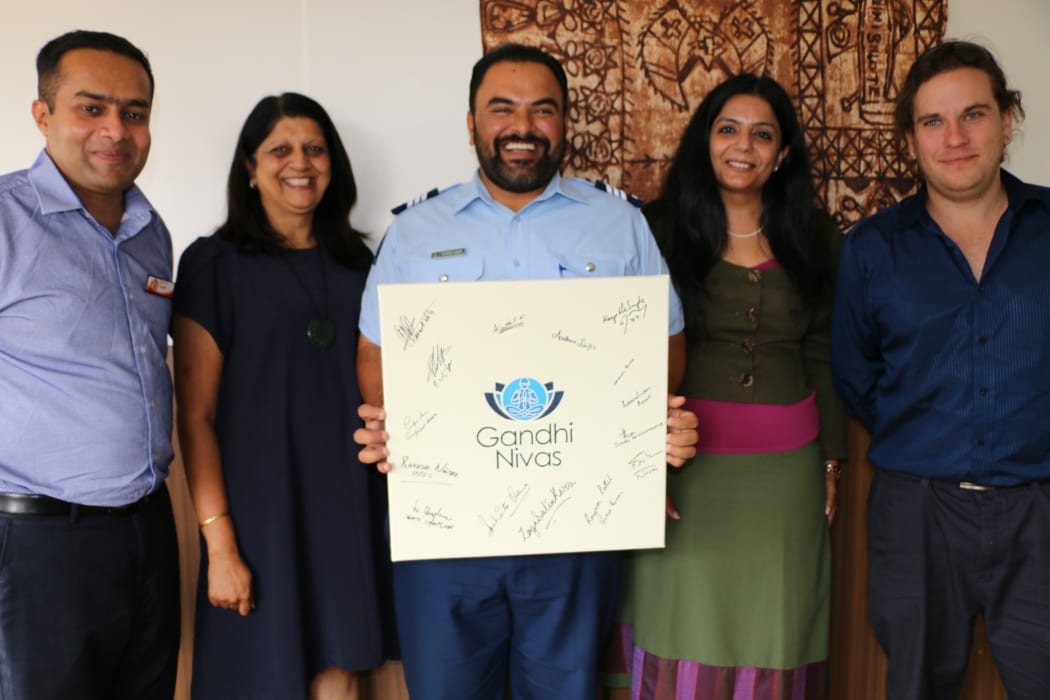
The Gandhi Nivas team including Ranjna Patel (second left). Photo: RNZ / Lynda Chanwai-Earle

